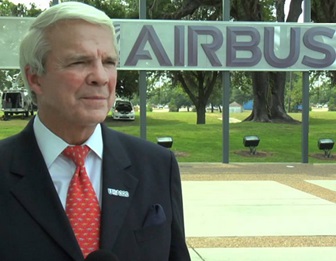 |
|
|
|
|
|
|
|
|
At that time there were numerous promises made. For example, better work conditions for air traffic controllers, improved safety conditions, better technology and newer ATC infrastructure. However, when you talk with passengers and air traffic controllers in private they will tell you conditions in many cases have gotten worse and believe that government did a better job.
When the McArtor wants to see a corporate national ATC system that would include a board of directors representing all aspects of the industry, in other words airline executives. McArtor said, “an all-new company with a fresh start,” allowing the FAA, “to get out of the business of controlling air traffic and to focus on what it does best, safety and certification.” Remember when Jeff Smisek was CEO of Continental Airlines (now President and CEO of United Airlines) said the tarmac rule was stupid, insane and warned it would lead to a sharp increase in cancellations. Well it turns out it was one of the best passenger safety rules passed by congress and implemented by the FAA. Today passengers no longer sit on the airport tarmacs waiting to disembark or for takeoff in a hot aircraft. See United Flight 270 Passengers Stranded On Tarmac Nearly Nine Hours and also Lowest Numbers Of Tarmac Delays On Record In 2014. (see United Airlines' CEO, Jeff Smisek Steps Down Over DOJ Investigation)
Do
you remember when Allegiant Air was fined for violating
DOT advertising rule Just recently the DOT fined Empire Airlines (Tim Komberec, President and CEO) for operating an aircraft after it was hit by lighting. As the maintenance manual requires the propeller must be removed from service and inspected for damage. Empire operated the aircraft on 35 revenue flights before removing its propeller from service and sending it to an authorized repair station for the required inspection. So who would McArtor like to sit on this corporate board? Maybe Smisek, Gallagher, and Komberec? Allan McArtor professional career; From 1987 to 1989 McArtor served as Administrator of the FAA through an appointment be President Ronald Reagan. Remember the Professional Air Traffic Controllers Organization or PATCO strike. During McArtor's tenure he did absolutely nothing to bring back those air traffic controllers. McArtor and the administration were not concerned about safety nor the concerns of air traffic controllers. It was not until the next presidency that the focus of safety and the air traffic controllers' concerns began to be addressed. But now McArtor is concerned with efficiency.
From 1989 to 1994 McArtor served in a number of senior
management positions at FedEx. In 2000, McArtor founded
Legend Airlines. The company was based out of At the luncheon McArtor said under his plan he would like to see congress fund this proposal for five to seven years, giving this private company time enough to be self-funding. He suggested carriers could pay US$50.00 per aircraft. “I don’t think there’s going to be any resistance from the community. I think you will get applause.” Back in June Rep. Bill Shuster, R-Pa., who is chairman of the Transportation and Infrastructure Committee, said the ATC system should be removed from the FAA and allow a not-for-profit corporation oversee those functions. He said fees from the airlines would save billions of dollars and provide more stable funding than congressional appropriations. So he supports privatization because "the do nothing congress" can't do its job. This is not about saving taxpayer dollars or safety. This is about airlines doing what they want to do. Like fly unsafe planes, charging exorbitant amount of money for passenger tickets and not having to worry about fines for sitting on a tarmac with passengers for 9 hours. |
||||
|
|
||||

